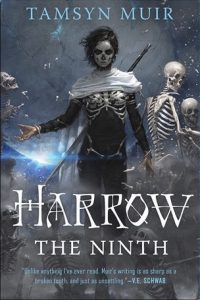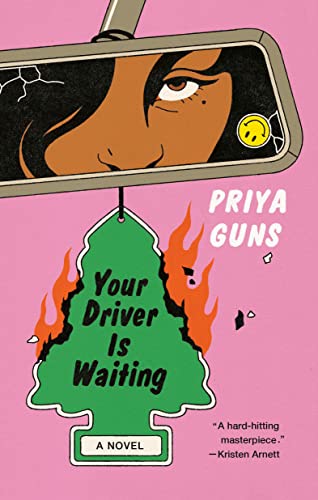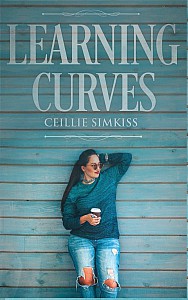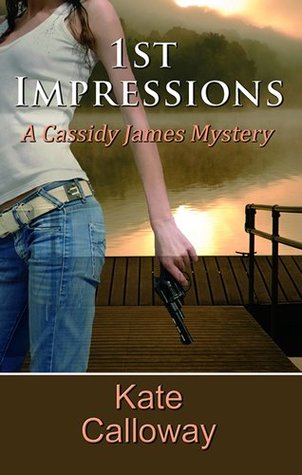Amazon Affiliate Link | Bookshop.org Affiliate Link
Content warnings: Horror, graphic violence, character death, attempted murder and murder, body horror, gore, PTSD/trauma, mentions of suicide and suicidal ideation.
If Gideon the Ninth seemed confusing, you will look back and call yourself a sweet summer child, as the meme goes, after finishing its sequel, Harrow. As the second book in Tamsyn Muir’s Locked Tomb series, published in August 2020, I was fully expecting to look at the Lesbrary’s archive and find it reviewed already—and didn’t.
And to be quite honest and speaking with the utmost love for my fellow Lesbrarians and Harrow itself, I can’t blame you, because this is the most confusing, frustrating and downright amazing book I’ve ever read.
A dear friend, who encouraged me to liveblog at them while I was reading, was subjected to paragraphs of “AAAAH!!!”, “wHAT?!”, “I feel like I’m having a stroke reading this”, “like a nosebleed in literary form”, “this book is the personification of emotional whiplash” and “what is going on???“, interspersed with memes, quotes and prose segments from the book that made me feel out of my mind, as well as wild theorizing about the story’s mysteries. I’m sorry, Elvie, I love you and cherish you and thank you for making me read this and letting me yell my confusion at you. In short, dear readers here: If you’re planning to tackle Harrow, find someone who’s already read it and ask them to let you yell your confusion at them. It will make the experience immeasurably better for both of you.
This is really just an attempt to emphasize the wild ride you will embark on opening this book, but honestly? Nothing I can say in this review can possibly prepare you for what Harrow the Ninth is going to throw at you in its 512 pages. It can be summarized, roughly, but that won’t do the story justice.
The first part of the novel is told in two interchanging POVs. One is a second-person narration describing Harrowhark Nonagesimus’s ascent to lyctorhood that she achieved at the end of Gideon. This POV details her life in the Mithraeum and her interactions not just with her fellow Lyctors: Ianthe Tridentarius for one, in addition to the original remaining Lyctors Augustine, Mercymorn and Ortus, as well the Emperor Undying, the Necrolord Prime and God of the Nine Houses, John.
They embark on an absurd (and absurdly funny), emotionally charged gothic workplace comedy slash slice of life montage counting down to the ominous event of the Emperor’s Murder in the chapter headings. It tackles worldbuilding, training, some friendly amputation, heavily implied necrophilia, cannibalism, soup-making and multiple assassination attempts, among other things. Some of these are one and the same. Readers also learn about the two primary antagonistic forces that John-God and his merry band of Lyctors face: A group of anti-necromancy fundamentalists called Blood of Eden as well as the so-called Resurrection Beasts, results of an ancient and extremely powerful feat of John’s necromancy.
And among all that, there is no sign of Gideon. These chapters reveal plenty about Lyctorhood and the particular fusion that Lyctors undergo with their Cavalier. Harrow, interestingly, while remaining a necromantic prodigy, fails to perform in this regard. This also is the continuing thread that runs from this to the second POV the story is told in—the other part of the book, told in third person, re-narrates Gideon and the trials at Canaan House, but with decisive changes: Characters are dying in different orders and ways than previously, and there is a monster sleeping at the heart of the house. And above all, to the reader if not to Harrow, Gideon’s continued absence hangs like her two-hander. In her stead, readers find Ortus Nigenad, another Ninth House member, who is busier composing a verse epic about a Ninth House hero than being a Cavalier, which proves to be both a curse and eventually even a blessing.
Confusing? Yes, and this isn’t even half of it. I don’t want to cover the rest, because revealing the big plot twists that explain some of the most pressing questions once the two narrative strands converge (and then raise more of them—this book raises as many questions as it does skeletons!) would spoil some truly mind-blowing “wtf” moments. Among the online fanbase, theories to piece together the answers to some open questions, speculation and attempts to fill in the gaps abound. Many point out that Tamsyn Muir’s literary wizardry relies on misdirection and withholding information to sneak the plot’s puzzle pieces in place. The glamour of the prose, the jokes and memes are just the distracting cherry on top of a much more convoluted plot around Gideon’s disappearance and the connection to the wider mythology of the series.
What bears pointing out beyond that, since this is a Lesbrary review: even in Gideon’s absence, there is plenty of queer content. As in the first book, sexual orientation is a non-issue, but hey, if not even God is straight, that’s probably a moot point. My liveblogging at my friend Elvie included plenty of “Ianthe and Harrow should kiss—angrily” because in Gideon’s absence they are the main female-female relationship of the story, in which vulnerability and emotional closeness battle with Lyctor politics and the characters’ own agendas. In short, it’s a delightful mess, much like the rest of the relationships in the story, and more often than not it also made me want to transport Harrow back to Drearburh in a hurry to just give the poor girl a break.
I am not entirely sure how to end this review, other than on another attempt to sum up the experience of reading it. Harrow the Ninth is a literary masterpiece, something that feels like a combination of dream logic, memes and humor pasted onto a deftly plotted narrative skeleton (pardon the pun). I want to say that Tamsyn Muir pulled out all the stops in both an exercise in worldbuilding and characterization, as well as connecting Harrow’s particular story to a wider world and the goings-on in it. But that would probably not do justice to the upcoming sequels, which are bound to be even wilder.



